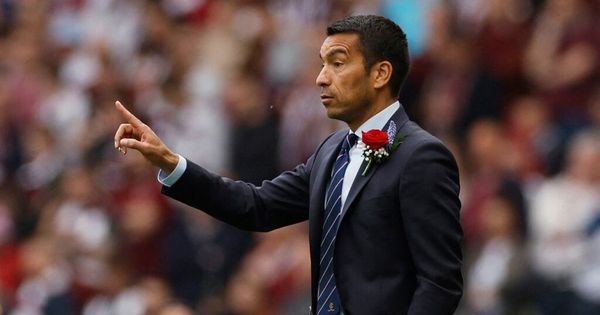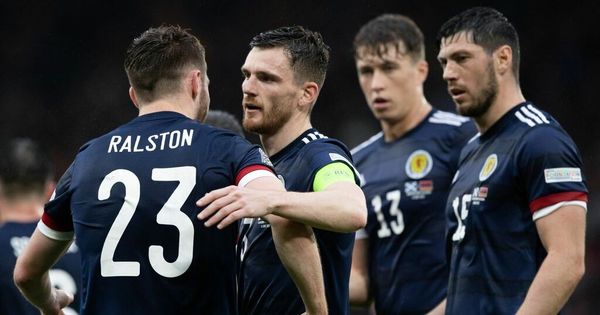
THE two outstanding Scotland players in the Nations League win over Armenia at Hampden on Wednesday night both very much followed a traditional path when they were starting out in the professional game.
Scott McKenna, the Nottingham Forest centre half who netted the national team’s second goal in the 2-0 victory, went out on loan to lower league clubs Ayr United and Alloa when he was a youngster at Aberdeen.
Anthony Ralston, the Celtic right back who opened the scoring in the Group B1 match and was named Man of the Match after the final whistle, had temporary spells at Queen’s Park, Dundee United and St Johnstone.
Those stints helped the defensive duo to learn a little, probably a great deal in fact, about the realities of playing football for a living. There is much to be said for squaring up to Raith Rovers at Stark’s Park on a freezing cold Tuesday night in February. It is far more character-building than a meaningless kickabout against your peers at some soulless training ground.
McKenna and Ralston have certainly gone from strength to strength since and look, on the evidence of their impressive midweek showings, set to serve their country with distinction for years to come.
Given how much they have benefitted from the loans which set so many other Scotland greats on the road to stardom – they did Kenny Dalglish (Cumbernauld United), Danny McGrain (Maryhill Juniors), Willie Miller (Peterhead), Alex McLeish (Lewis United), Kenny Miller (Stenhousemuir) and Craig Gordon (Cowdenbeath) no harm at all – fans could be forgiven for asking a few questions.
What is the point of Celtic, Hearts and Rangers entering B teams into the Lowland League in the 2022/23 season? Would the Parkhead, Tynecastle and Ibrox clubs not be far better off farming their promising kids out to sides in the Championship, League One or League Two? How are they going to mature facing Civil Service Strollers, Dalbeattie Star and Edinburgh University in the fifth tier?
But the announcement made by the SFA this week - the governing body confirmed the division would be expanded to 19 teams next term and accommodate sides from the top three cinch Premiership clubs – should be celebrated by Tartan Army footsoldiers every bit as much as the Ralston or McKenna goals against Armenia.
The move is a further step in the right direction in a country which has long lagged behind far more progressive (and successful) football nations and increases the chances of far more of our best prospects making the problematic transition from the youth ranks to the senior game in the future. That can only be good for Scotland going forward.
There are numerous advantages to Celtic, Hearts and Rangers keeping their starlets under their watchful eye. They can monitor how they are training and developing on a daily basis far more closely. They can, too, play them in the same system which their manager deploys on a weekly basis and therefore make their step up into the first team far easier when it comes.
France, Germany, Italy, the Netherlands, Portugal and Spain have flourished as a result of that forward-thinking strategy over the years; Atletico Madrid B, Barcelona B, Bayern Munich II, Benfica B, Jong Ajax, Juventus U-23, Monaco B and Real Madrid Castilla all play in the senior leagues and have all provided a pathway for some exceptional footballers over the years
Would Nathan Patterson have made such an impact in the Rangers team last season and Scotland this term without being involved in the Challenge Cup – which introduced top flight under-20 teams back in 2016 - against the likes of Stranraer, Wrexham and Inverness Caledonian Thistle when he was coming through?
The Everton defender has great physical attributes and an abundance of natural talent. But would he really have done quite so well quite so quickly if he had only featured in the youth leagues previously? It is highly doubtful. The merit in exposing him to a higher standard of opposition has been obvious since.
Will Robbie McCrorie, Alex Lowry, Cole McKinnon, Charlie McMann or Leon King follow in Patterson’s footsteps. There is no guarantee given the quality of player they are vying for a place in Giovanni van Bronckhorst’s side with. But great things are expected after some encouraging displays in recent months. Is that another sign this long overdue experiment is working?
Celtic, Hearts and Rangers sides playing in the Lowland League next season is not going to turn Scotland into a modern day version of the 1970 Brazil team overnight. However, it is worth at least trying something different given the decades of failure and disappointment this country has endured and which continued with the Qatar 2022 play-off semi-final defeat to Ukraine last week.
Nothing ventured, nothing gained. The definition of insanity is, as the old saying goes, doing the same thing over and over again and expecting different results.
With a bit of luck, the SPFL clubs will acknowledge what a positive idea it is and give their backing to B sides playing in League Two in the not-too-distant future.










